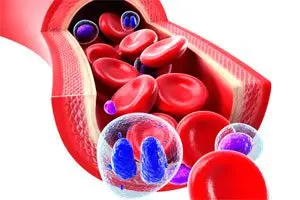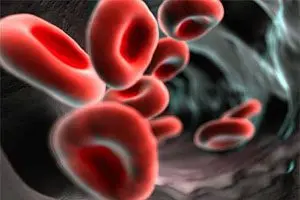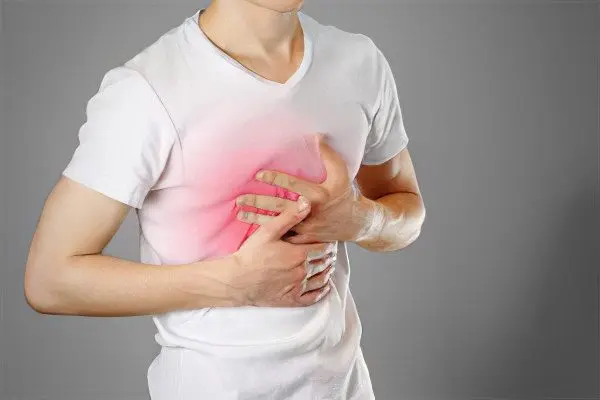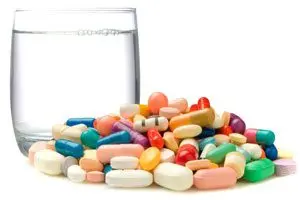Contents

Hypoproteinemia is an abnormally low level of protein in the blood plasma. Normally, in a healthy person, the protein content is 63-83 g / l or 7-8% of the serum part of the blood.
The total protein is represented by albumins and globulins. Hypoproteinemia is said to be when the protein level drops to 63 g / l and below.
The reasons for the development of such a condition can be very diverse, but without any external or internal factors, the protein in the blood does not fall below normal. Sometimes nutritional errors lead to hypoproteinemia, and sometimes much more serious diseases. Accelerated protein breakdown negatively affects health. Therefore, it is necessary to find out the reasons for its fall and eliminate them.
Causes of hypoproteinemia

Causes that can provoke hypoproteinemia:
Compliance with the strictest diet with a sharp restriction of protein foods.
Chronic malnutrition due to any external or internal factors.
Diseases of the digestive system, which do not allow the protein to be fully absorbed by the body. It can be colitis, enteritis, narrowing of the esophagus, etc.
Liver damage: hepatitis, liver failure or cirrhosis. As a result of these pathological processes, protein synthesis in the body will be disrupted.
Congenital diseases that lead to the inability of the body to produce certain protein compounds, for example, Konovalov-Wilson disease.
Accelerated destruction of proteins in the body.
The reasons for this condition may be as follows:
The presence of a malignant tumor in the body.
Received a burn with damage to large areas of the body.
Hyperthyroidism.
Postponed surgical interventions.
High body temperature that persists for a long time.
Long-term treatment with corticosteroid drugs.
Regular physical activity, unbearable for the human body.
Excessive excretion of protein in the urine. A similar problem develops in diabetes mellitus, glomerulonephritis, ascites, chronic diarrhea, nephrotic syndrome, etc.
A low level of protein in the blood is observed with developing ascites and exudative pleurisy.
Against the background of massive blood loss, the protein will leave the body along with the blood.
Traumatic shock.
Separately, it should be noted the relative hypoproteinemia. In this condition, a decrease in the level of protein in the blood occurs due to a change in the water content in the bloodstream.
Reasons for this violation:
Excessive intake of fluid in the body (hyperhydration).
Decreased diuresis, or complete cessation of urination.
Massive intravenous infusions of glucose to patients who suffer from kidney pathologies.
Excessive intake of vasopressin into the bloodstream. This hormone promotes fluid retention in the body.
There are true and false hypoproteinemia. True hypoproteinemia can be primary, that is, it develops in a person from birth, for example, with Bruton’s disease. Secondary true hypoproteinemia manifests itself during life, for example, with a burn disease.
False, or as it is also called, hemodilutional hypoproteinemia develops against the background of hypervolemia, for example, in renal failure.
Sometimes the reasons for the decrease in the level of protein in the blood cannot be determined. In this case, we speak of essential hypoproteinemia. Such a violation rarely occurs.
Symptoms of hypoproteinemia

Blood proteins are a vehicle for various substances, and are also responsible for the oncotic pressure of blood plasma. To a greater extent, the load lies on albumins, which carry fatty acids, lipids, bilirubin, etc. Albumins are also mainly responsible for maintaining blood pressure. However, this does not mean that globulins circulate in the blood plasma without any functional load. They are responsible for the state of human immunity, take part in lipid metabolism, carry vitamins, copper, calcium and iron ions.
Not surprisingly, hypoproteinemia is accompanied by serious disorders in the body.
A decrease in the concentration of total protein in the blood plasma can be manifested by the following symptoms:
The osmotic pressure of the blood decreases, which leads to the release of fluid outside the vascular bed. From the blood collaterals, it penetrates into the surrounding tissues. As a result, the patient develops edema throughout the body or locally. Most often they are especially noticeable in the lower extremities.
Nutrients are transported to the internal organs more slowly.
The process of antibody production slows down. As a result, the body becomes vulnerable to infections. Immunodeficiency is especially pronounced in childhood.
With a sharp decrease in the level of proteins in the blood, there may be a sharp effusion of fluid into various tissues and organs.
This leads to the following complications:
The patient develops ascites if the effusion occurs in the peritoneal cavity.
Arrhythmia and pericarditis are observed when fluid enters the pericardium.
Pleurisy or pneumonia develops in patients in whom effusion occurs in the pleural region.
Hypoproteinemia during pregnancy
Hypoproteinemia during pregnancy indicates developing preeclampsia. Other symptoms of this formidable complication are: weight gain, the formation of edema, high blood pressure, and a tendency to convulsions. Preeclampsia requires emergency medical care, as it poses a threat not only to health, but also to the life of the mother and fetus.
With a critically low level of protein in the blood, the fetus develops thrombocytopenia and malnutrition. The pregnant woman herself has severe nephropathy. Therefore, when the first signs of preeclampsia appear, the pregnant woman must be urgently hospitalized.
Diagnosis of hypoproteinemia
To determine hypoproteinemia, it is necessary to take blood for a biochemical analysis. Blood is taken from a vein. Hypoproteinemia is indicated by a decrease in plasma protein levels to 63 g / l and below.
After detecting hypoproteinemia, the doctor will prescribe to the patient a set of additional examinations aimed at establishing the cause that caused the sharp drop in the level of protein in the blood.
Treatment of hypoproteinemias

Treatment of hypoproteinemia involves the following activities:
If the drop in the level of protein in the blood was caused by dietary errors, then you need to change your own diet. Foods that are rich in proteins: poultry, beef, veal, pork, fish, eggs, cheeses.
If liver diseases have led to hypoproteinemia, then the patient is prescribed hepatoprotectors, vitamin-mineral complexes, glucose. In severe cases, surgery is required to remove part of the organ or a liver transplant.
With a drop in protein levels against the background of impaired renal function, the patient is prescribed diuretic drugs, antibacterial and anti-inflammatory drugs. Perhaps hemodialysis.
With malabsorption syndrome, enzymes and probiotics are prescribed, as well as the patient’s diet is adjusted.
In addition to treating the underlying disease, which led to a decrease in the level of protein in the blood, anabolic steroids (Retabolil) may be prescribed. They are aimed at increasing the production of proteins. In case of an acute shortage of albumins, the patient is given infusions of Lactoprotein, Aminoven, etc. solutions.
Fluid effusion into the pleural region or peritoneum requires aspiration.
Forecast and prevention of hypoproteinemia
If hypoproteinemia is provoked by an unbalanced diet, then the prognosis for recovery is as favorable as possible. In other cases, it depends on the underlying cause of the drop in protein in the blood. Developing nephropathy of pregnant women most often requires its interruption.
In order to prevent hypoproteinemia, it is necessary to eat properly and balanced, as well as to treat diseases of the liver, kidneys and organs of the digestive system in time.









